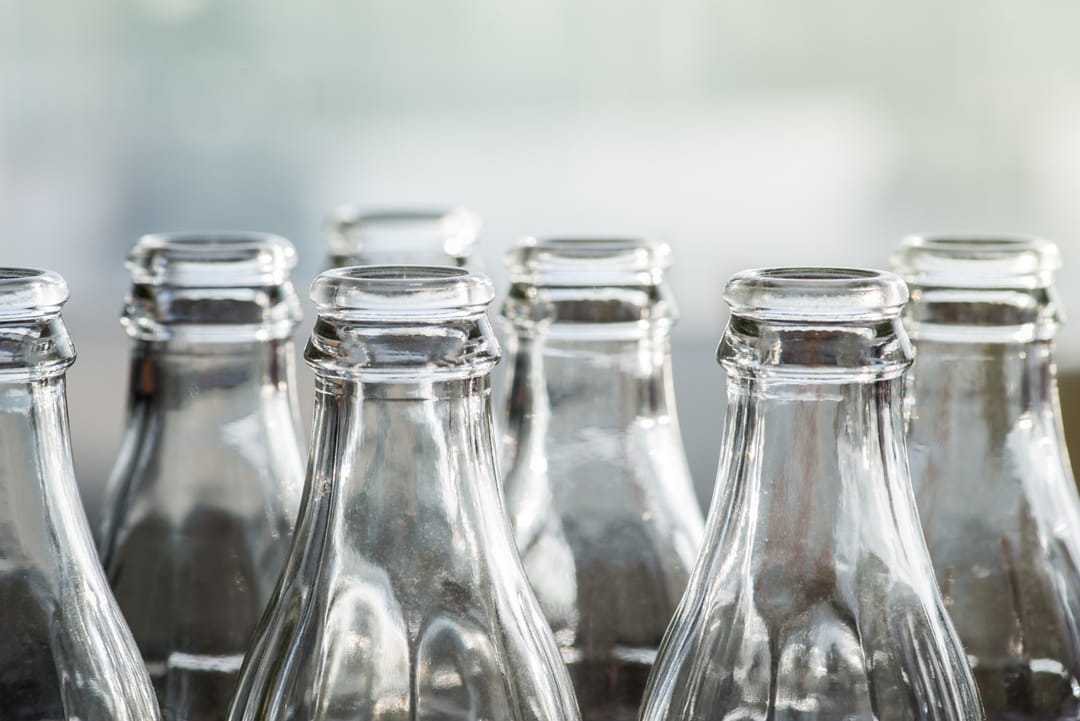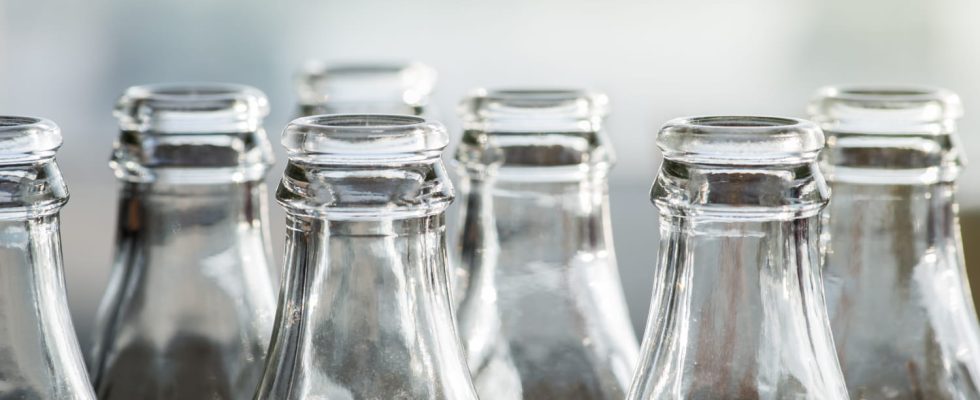Rather than sorting them, you might prefer to return your glass bottles to the store for a small deposit. Is it possible ?
What to do with your empty glass bottles? Usually, you must either put them in the green bin in your building or take them to the green bin closest to your home. They will then be recovered and recycled. However, for several years, the idea of also being able to bring them back into stores has been emerging.
In 2022, for example, according to Capital, Carrefour wanted to test the recovery of glass bottles. The brand then offered a “Bring me back” section in four stores in Brittany. After purchasing their bottles, customers could return them and place them in a “returnable bottle collector” machine. Their movements allowed them to reuse the bottles rather than destroying them, but in addition, they received compensation. They could get twenty cents per bottle brought back. The store then sorted the bottles before they were collected by a local company, washed and put back into service. These bottles would be reusable up to twenty times.

In June 2023, the current Secretary of State for Ecology announced the generalization of this system within two years. An obligation could then soon concern certain supermarkets depending on their surface area. The deposit should then be set between ten and thirty cents per bottle. As reported The Telegram, Bérangère Couillard explained that the aim was to achieve the objective of eliminating plastic packaging by 2040 and that this involves the “reuse of glass”. To encourage brands to get started, a fund of 50 million euros had to be released.
Where are we today? No legislation yet requires merchants to take back your glass bottles or containers. 60 million consumers reported that in an organic store, a customer was indeed refused the return of a glass bottle in exchange for a small refund. However, some brands continue to experiment with it but they can choose their deposit system: voucher, free coffee, deferred payment, etc. They can also set reimbursement conditions such as an obligation for another purchase for example. This process could therefore be generalized quickly in order to promote the reuse of such containers, as is increasingly done in the fast food sector, for example.
